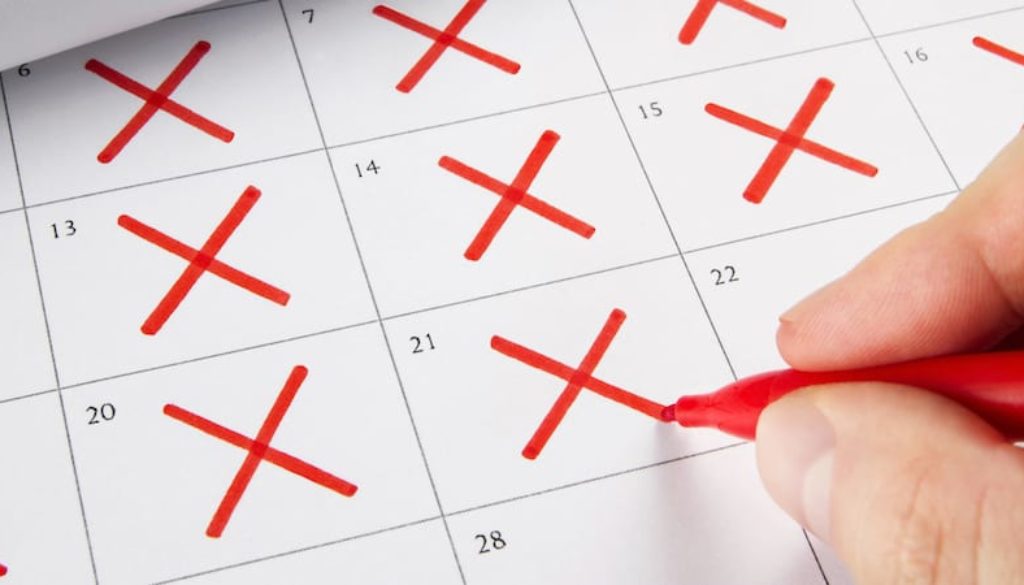Deuteronomy 16:9-12 Seven Weeks

Moses moves to the second feast of the religious year. This is the Feast of Weeks. It takes place seven weeks after Passover.
The Feast of Weeks is also known a Pentecost and Shavuot. This is a harvest festival which celebrates the conclusion of the grain harvests. Barley is the first grain harvested and wheat is the final grain. The harvest time lasted seven weeks and began “from the time the sickle is first put to the standing grain” (verse 9b) which happens the day after Passover.
This feast is also to be celebrated “at the place that the Lord your God will choose, to make His name dwell there” (verse 11c). EVERYONE was to come for this festival; “you and your son and your daughter, your male servant and your female servant, the Levite who is within your towns, the sojourner, the fatherless, and the widow who are among you” (verse 11b). Passover was for the Jewish people but the Feast of Weeks was for everyone.
When Jesus rose from the dead He told His disciples to remain in Jerusalem until the Feast of Weeks, Pentecost, was concluded. I have a feeling that a LOT of people stayed during that same seven weeks. Those who tended the fields and harvested couldn’t of course but many others would. Taking two journeys in such a short time would have induced people to stay or to choose one or the other festivals to attend.
Jerusalem would have been filled to overflowing this time every year. I wonder what it looked like during those seven weeks. Were there tents everywhere you looked? I imagine every inn was full. The press of people would have been intense. Would moving through the streets would have been like swimming in a sea of people? What did the people do during the waiting? Those selling in the markets probably made more during this time of year than any other. But what was the focus of the people between the two festivals?
The Jewish faith uses the Feast of Weeks to commemorate God giving the people the Law at Mt. Sinai. So was the seven weeks in between filled with preparations or anticipation of that event? The time between “freedom” and “covenant.” What marked the passage of days?
This question brings to mind Christmas countdown calendars. In our home we used the “Jesse Tree” advent book to mark the passage of days until Christmas. It focused on the story of God’s plan of redemption from creation to the cradle. It also made sure to emphasize that the cradle wasn’t the end of the story. Did the children of Israel count down to the Feast of Weeks like we did? Did they revisit the progress of the people through the wilderness? Did the recount the miracles? Did they remember the lessons that they learned? Did they revisit the covenant God made with them piece by piece?
Something else I noticed while thinking about this festival was that God fixed the dates from the beginning. The people were in the same hemisphere when they lived in Egypt but did they follow the same harvest schedules? God’s dates were perfect for the growing seasons in the land He had promised to give to His chosen people. He didn’t wait until they were settled in the land to figure out which days would be best. He knew BEFORE He sent the first plague. He timed it out perfectly. Yet He kept this a secret. He didn’t tell Moses why He chose these days. He set it out and watched the people’s realization dawn on them, just like it did for me. I LOVE seeing His fingerprints all over the place. HE knows what we need before we even get to the point of that need. And He prepares for it.
Father God, Your fingerprints are all over my life. I love seeing them pop up in Your stories. I love that You show them to me in a quiet whisper. I was wondering what You would show me in this section today. I LOVE that You brought one more thing out of this familiar story. Keep me searching and coming to You. I want to commemorate each day with You. A countdown to eternity. Thank You for preparing the way in advance. For preparing my way in advance. I know I can trust You to lead me to exactly where I’m supposed to be.



